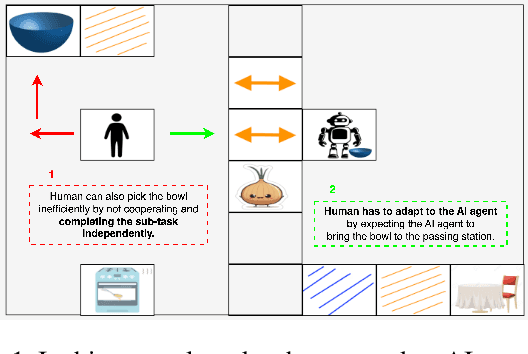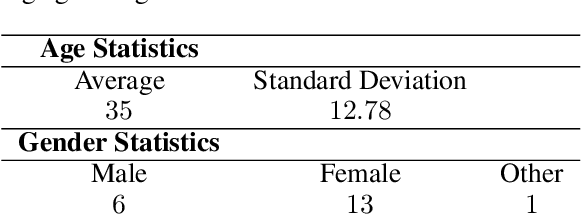Benchmarking Multi-Agent Preference-based Reinforcement Learning for Human-AI Teaming
Paper and Code
Dec 21, 2023



Preference-based Reinforcement Learning (PbRL) is an active area of research, and has made significant strides in single-agent actor and in observer human-in-the-loop scenarios. However, its application within the co-operative multi-agent RL frameworks, where humans actively participate and express preferences for agent behavior, remains largely uncharted. We consider a two-agent (Human-AI) cooperative setup where both the agents are rewarded according to human's reward function for the team. However, the agent does not have access to it, and instead, utilizes preference-based queries to elicit its objectives and human's preferences for the robot in the human-robot team. We introduce the notion of Human-Flexibility, i.e. whether the human partner is amenable to multiple team strategies, with a special case being Specified Orchestration where the human has a single team policy in mind (most constrained case). We propose a suite of domains to study PbRL for Human-AI cooperative setup which explicitly require forced cooperation. Adapting state-of-the-art single-agent PbRL algorithms to our two-agent setting, we conduct a comprehensive benchmarking study across our domain suite. Our findings highlight the challenges associated with high degree of Human-Flexibility and the limited access to the human's envisioned policy in PbRL for Human-AI cooperation. Notably, we observe that PbRL algorithms exhibit effective performance exclusively in the case of Specified Orchestration which can be seen as an upper bound PbRL performance for future research.
 Add to Chrome
Add to Chrome Add to Firefox
Add to Firefox Add to Edge
Add to Edge